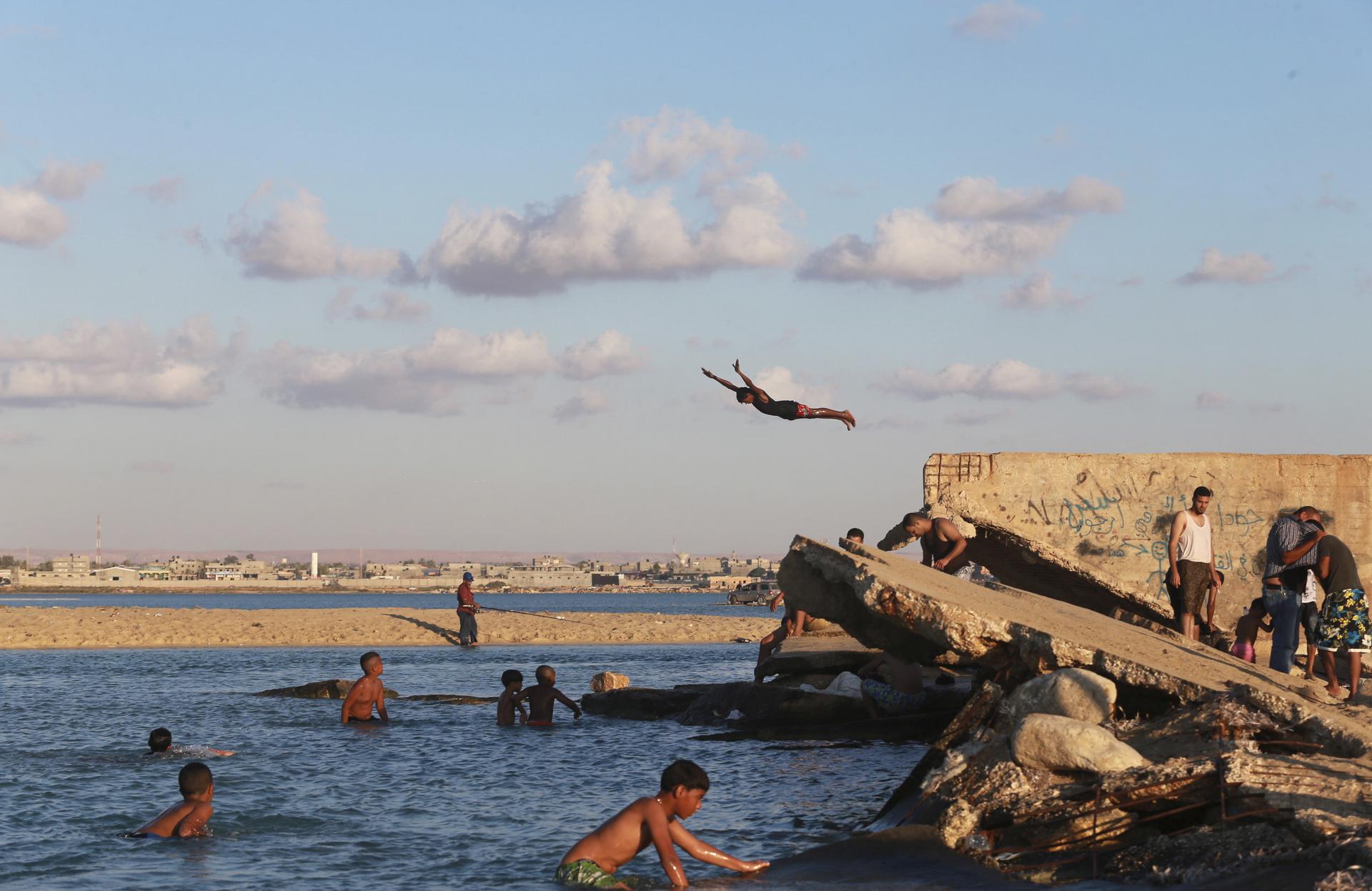A beachgoer dives into the waters of the Mediterranean Sea, off the coast of Benghazi, Libya.
Benghazi has grabbed headlines again this week, given the testimony of former Secretary of State Hillary Clinton before the House Benghazi committee. News from inside Libya's second city is harder to come by.
But New York Times correspondent David Kirkpatrick has taken a long, hard look at the city with his colleague in Libya, Suliman Ali Zway. Kirkpatrick says Benghazi is "more or less" safe, and except for the occasional shell falling from the sky, residents are able to move around town.
"There are young men, driving out at night to smoke water pipes and sip espresso in cafes, or play soccer under the lights just like they used to," Kirkpatrick says. "The city in part is alive and in part is a war zone."
Still, polarizing figures like anti-Islamist Gen. Khalifa Hifter, a former close ally of Muammar Gaddafi loom over the city's politics.
"A certain set of Libyans, especially in Benghazi, said 'Hurrah, thank God. (Gen. Hifter) can rescue us from these dangerous militants'," Kirkpatrick says. "Others said, 'Oh no, here's another Gaddafi.' And that was really one of the catalysts that brought out the worst in everybody. So half the city is terrified of another Gaddafi, and half of the city is terrified that it's going to become Kandahar under the Taliban."
Political figures from the capital, Tripoli, have little clout in Benghazi.
"There are two different authorities you have to negotiate with about your visa, there are two different airports you have to try to get access to, there's borders you can't cross. It's effectively two different governments," Kirkpatrick notes.
Still, one central bank in Libya is the repository for the country's oil revenues, and it continues to pay public salaries.
"That's the glue that's holding Libya as a society together," he adds.
